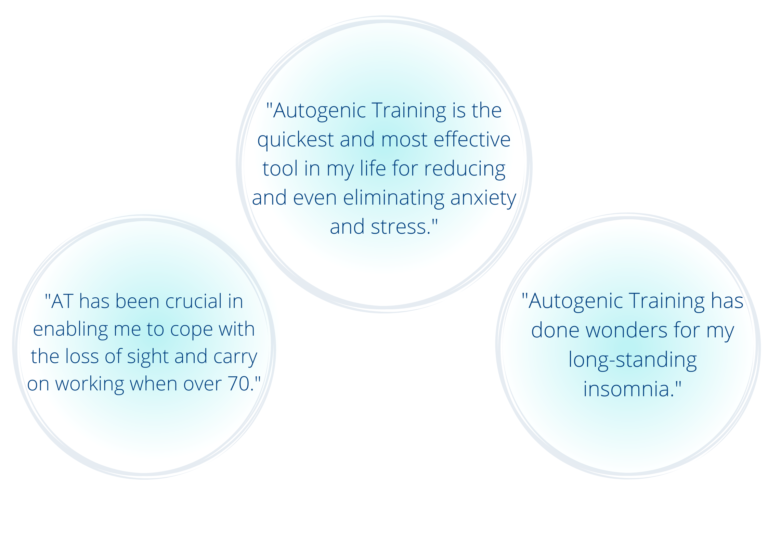AT enhances whole brain thinking and feeling, which may explain the benefits it can bring in many walks of life. In addition to its capacity to enhance the healing and recuperative powers of the body, AT rebalances our mental faculties and bring closer harmony between the analytical left hemisphere of the brain and the more emotional, inspirational and creative right hemisphere. The result seems to be an inner calmness, a sense of well-being, and a detachment that brings out the ‘best of both worlds’. Clients of AT report a greater access to feelings and intuition, but also an increased capacity for objectivity and rational thought, including an objectivity about their own emotional responses.
A summary of medical and psychosomatic disorders for which autogenic training has been used either solely or alongside medical treatment.
| Types of Disorder | Specific Applications |
| Cardiovascular |
|
| Respiratory |
|
| Gastrointestinal |
|
| Genitourinary |
|
| Musculoskeletal |
|
| Endocrine and Metabolic |
|
| Neurological |
|
| Psychological |
|

